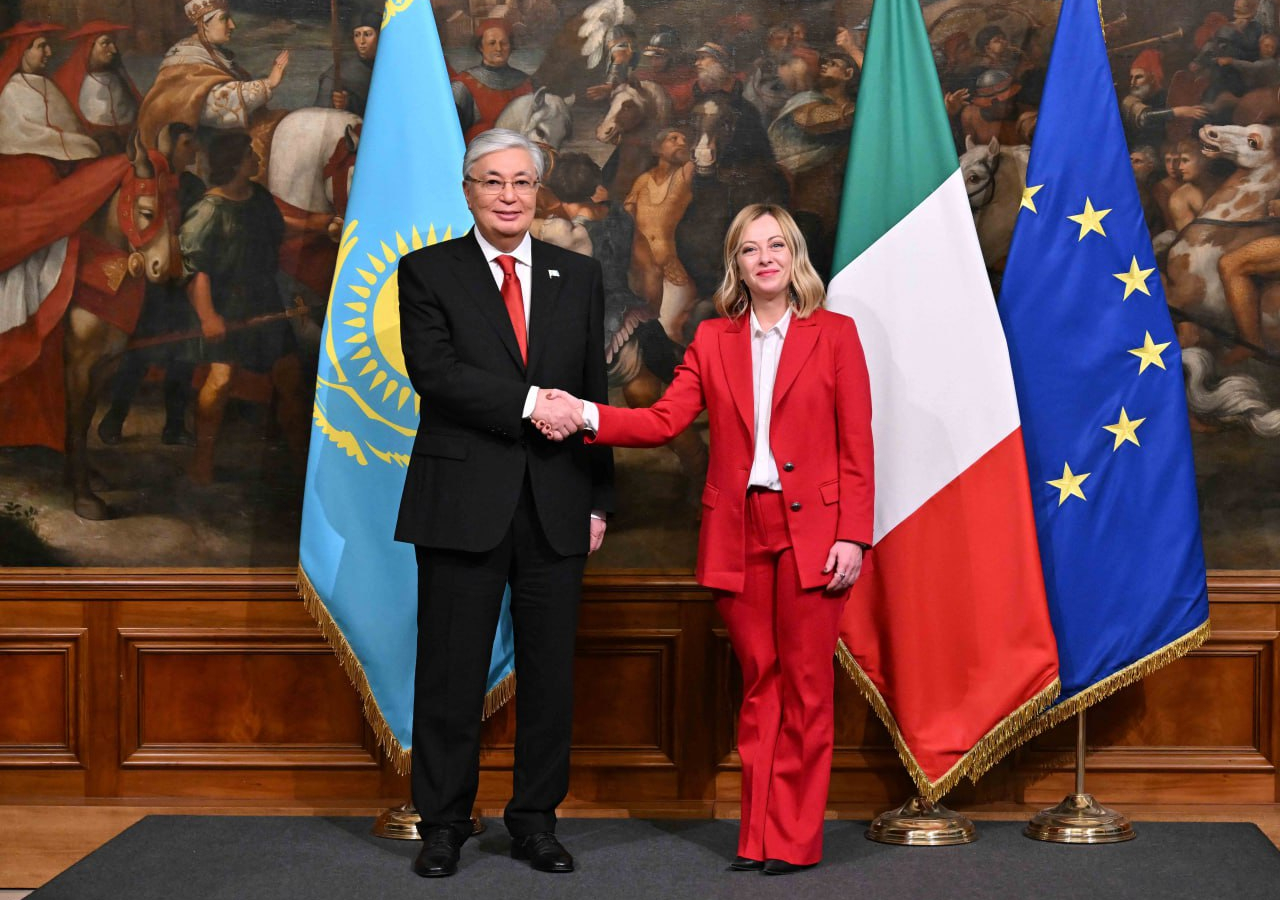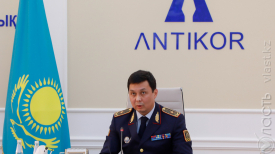- ВКонтакте
- РћРТвЂВВВВВВВВнокласснРСвЂВВВВВВВВРєРСвЂВВВВВВВВ
Kazakhstan’s President Kassym-Jomart Tokayev flew to Italy to meet Italian prime minister Giorga Meloni and President Sergio Mattarella on January 18. In his first visit to Rome, Tokayev said that trade turnover between the two countries amounted to around $15 billion in 2023. This is mostly driven by Kazakhstan’s oil exports (we explained yesterday that this is a misleading calculation based on Kazakhstan’s statistics).
Riders and couriers working for Wolt, a Finnish tech company that operates a delivery platform, protested outside the company’s office in Almaty on January 15. They claimed that the company reduced their payments and bonuses via the platform. In an interview with Vlast, a Wolt spokesperson said the bonuses were temporary and the payments have remained flat. Delivery workers have tried for two years to unionize.
Railway workers in the western region of Mangistau came out in solidarity with oil service workers that had been on strike for more than one month on January 16. Hundreds of workers for West Oil Software, an oil service company in the oil town of Zhetybai, started a strike over worsening working conditions on December 11 last year. Over the following five weeks, the company fired several workers that had joined the strike, which a local judge deemed “illegal”.
Ten relatives of the victims of Qandy Qantar (Kazakh for ‘Bloody January’) who came out in protest outside the presidential palace in Astana, were arrested and fined on January 15. Over the past two years, the family members of those who suffered during the suppression of public protests in January 2022 have persistently advocated for justice.
Kazakhstan’s entire territory will fall under the UTC+5 time zone from next March, the ministry of trade said on January 19. A proposal to eliminate the division into two time zones (UTC+5 and UTC+6) was fielded for public discussion in December last year.
Air Astana confirmed on January 19 that it intends to list securities amounting to at least 25% of the company’s total outstanding shares. Last week, Air Astana, which is owned by sovereign wealth fund Samruk-Kazyna (51%) and a local subsidiary of British BAE Systems (49%), said it would list securities and shares in the London Stock Exchange, Almaty’s KASE, and the Astana International Exchange.
A site previously occupied by a market linked to Bolat Nazarbayev, the brother of former President Nursultan Nazarbayev, was confiscated and returned into government ownership, the Prosecutor General’s Office said on January 17. Bolat Nazarbayev died in November last year. He owned a network of companies controlling several markets across the southern regions of Kazakhstan.
Kazakhstan’s Central Bank reduced interest rates by 50 basis points to 15.25% on January 19. This is the fourth consecutive time since July 2023 that the Central Bank cuts rates, citing improved economic indicators and a slowing inflation. In December 2023, according to official figures, inflation stood at 9.8%.
Timur Suleimenov, the Central Bank head, said on January 19 that for the National Fund to reach its objective of increasing its assets to $100 billion by 2030 the global price of oil should increase and the amount the Fund transfers to the state budget should decrease. In 2023, the National Fund transferred around 4 trillion tenge (around $8.8 billion) to the state budget. As of December 2023, the Fund’s reserves and assets amounted to $60 billion.
Between January 15 and 17, in Kyrgyzstan, 11 journalists were arrested and Bishkek prosecutors ordered a search in a local newsroom amid an increased crackdown against independent media. In a statement, the Committee to Protect Journalists, a press freedom watchdog, said: “Reports that authorities confiscated all the outlets’ equipment on such highly dubious grounds, gaining access to confidential sources, are deeply concerning.”
The shareholders in the Kashagan offshore oil project could be close to settling their dispute with the government, according to sources quoted by Bloomberg on January 16. Last year, the government sued the consortium that includes foreign companies and state-owned Kazmunaigas for environmental damages worth $5 billion. Now, Bloomberg sources say that the fine could be thrown off once the companies agree to a $110 million investment plan into social projects.
Поддержите журналистику, которой доверяют.








